Although only one story wins our thrice yearly Short Fiction Contest, since we typically receive well over 100 entrants, often times there are several worthy of publication. Our last competition, our 37th, was won by Kenneth Levine. His short story “Homage” — about the effect Chet Baker’s drug addiction had on a father and son relationship — was published on November 4.
A finalist in the competition was Adam Murray’s “Silent City,” an excellent story about “how we can’t have the things we can no longer have because they no longer exist.” In this case, what we can’t have again is the 1940’s jazz laboratory known as Minton’s Playhouse. When I sent an email to Murray requesting his permission to allow me to publish “Silent City,” he wrote back and agreed, informing me that he had written this story specifically for Jerry Jazz Musician and “from there just kinda’ crossed my fingers.” In that same email, Murray wrote; “I’m currently homeless in Australia and penned this piece with my back to the brickwork behind a little jazz joint here called Ellington’s, digging on the swing, the night and the street, so your acceptance is a fitting coda for me. I’d be honoured to appear in your publication with like minded souls and voices.”
Murray’s email is an extraordinary reminder to me about the quality of character involved in the arts — someone who will often sacrifice so much and go to such great lengths to create it. His experience writing this piece while homeless, with his back to the brick wall of a jazz joint, “digging on the swing,” is evidence (as if we need more) of how tentative creative artists are financially everywhere in the world, and how even more tentative our world would be without them.
I am so very appreciative of all who participate in our Short Fiction Contest. Murray’s piece — and his personal journey — is all the the inspiration I need to keep this modest platform for aspiring writers open for business. Click here for details on how you can submit your story for consideration in our next competition.
*
Adam Murray describes himself…
I’m a noir/science fiction genre writer who left Melbourne where I lived in jazz bars to spend the last 2 years sequestrated in the rainforest of Indonesia. In a bamboo hut, in jungle seclusion I used a vintage typewriter to write while roasting squirrel and cobra on an open fire and bathing in a volcanic river. I have returned to Australia where I now live on the streets and use every means possible to publish my growing body of work, which includes 2 novels, a book of poetry and an anthology of short stories and prose.
Adam Murray’s website
_____
SILENT CITY
by Adam Murray
He met her there. At Frank’s. Below the pizzeria floorboards, in the wine cellar. Underground. A real femme fatale devil doll seesawing a high six heel on a wooden chair that rode her pencil hem just over a stocking knee.
Her bent elbow riding it, holding an Old Gold straight up she watched him enter and cocked an eyebrow under bangs of mahogany that matched her lips perfectly. The other hand limp on a glass of Jack Daniels, slender fingers bell caging the hooch, a gull wing collar and a diamond brooch in the shape of the Tournée Du Chat Noir cat.
She was the first dame he’d seen in a long time with that feline look in her eyes. And the last. A woman harder than the hatchet goons camping on Frank’s payroll. She was someone that barely skated the ruse of her place in a world of gin mills and crude thugs, barely containing her hunger to easily rule them all.
Sure, with some smooth suave and a few dozen cheap lines he laid her and she died for that. In concrete pumps she sunk into the layers of obsidian, orange peels, sick fish, bloated dogs and pistols pounded flat on anvils. Yeah, she sunk but good. And he beat the heat because he hightailed it back to nowhere, total anonymity in another gaping metropolis. But hell, now he could never go back to Motor City, Detroit. Not ever.
Man, a broad like that could really love and she could have owned the city. Well she was Frank’s business partner, the brains and beauty of the bootleg operation. Gone, real gone. And for what? A moments intense explosive ecstasy from the limp piece of deli meat he pisses through. He tightens his fists feeling everything slip through his fingers. Everything. Nothing.
And then he’s somewhere else in this flat lining city where everything smells like whiskey and sin and the monster in a man’s eyes dances with neon perversion. He’s thinking about how we can’t have the things we can no longer have because they no longer exist. He’d push back the door of this little jazz joint in Harlem, Minton’s Playhouse, a jazz laboratory for experimental musicians. Maybe ten years ago, Parker, Gillespie, Thelonious Monk, Charlie Christian and Kenny Clarke used to jam here. Midnight lubrication at 3 cents a shot and a Jew girl from the slums. Faces torn by strange lusts on a summer night where everything is flung wide open and everybody suffers without showing it. Abdicated flesh under a yellow bulb, crushed butts smouldering in a green glass ashtray on the Steinway baby grand and his second-hand Studebaker curb mounted. He’d sit back to the bar dangling a beer and experience the rhythm of things we can’t explain but feel through music. The first place in the world he felt truly at peace, at home, himself.
Well after they tore it down because the American Federation of Musicians had a strike over a royalty payments disagreement and a lot of the black jazz pioneers were enlisted in the war it all just became Sinatra in every house, in every mall, everywhere. Sure, he couldn’t listen to jazz no more. Sinatra, and everything suddenly sounded like Christmas and that was the whole point. A CIA plant in the home of every American crooning them into a false sense of security. Yep Sinatra, a government plot making every day Christmas. So we ate, drank, shopped and spent like it and look at us now, bloated with sedentary life and dropping like flies from over-consumption of absolutely everything. Sinatra, Christmas, mind control, Roswell, consumerism, hell it was all the same thing.
And Minton’s, just like that, gone.
Like they surgically cut something out of him by demolishing the jump joint. Like somehow the defeat of the black jazz big band and bebop movement had become his defeat too. Old Minton’s gone forever and he’s always longed to get back to that feeling but never could. How can he get back to that now it’s gone right? It’s impossible. Like some kinda’ space vortex between him and his previous happiness and contentment and all those sounds he’s never heard since. That time in his life, those feelings inspired in him, well they’re gone too. It’s all so futile and increasingly barren.
Some things you can never reclaim once they’re taken from you, that’s what this life is, irreclaimable actions and events that move us forward away from them into an uncertain future. Future, sure, what was that? Flying cars and robot butlers and pills to make you live forever. Yeah, live forever moving forward further and further away from the time that made you happiest. Progress and progression. Living, what a farce. For the birds, dig?
So he guesses he’ll stay here awhile living without living in this flophouse, in front of this typewriter with Armstrong on the wireless and a gallon of Mad Dog rotgut in the electric icebox. Sure, because it’s Satchmo now but pretty soon it’ll all be bubblegum.
Jazz is like that to him, irretrievably lost, like the dame that sunk in cement shoes, gone. So he walks the night rain of cemetery city in a fedora and a wool three piece listening to the songs of the street, watching the tuneless animals move without feeling. Waiting for a throaty ride on a tenor sax, wearing himself down with longing. Past boarded up cinemas and bars, into the unforgiving emptiness inside him where once swing music used to arouse his bones. Forward, into the silent void.
_________
Short Fiction by commissioned jazz writer Arya Jenkins






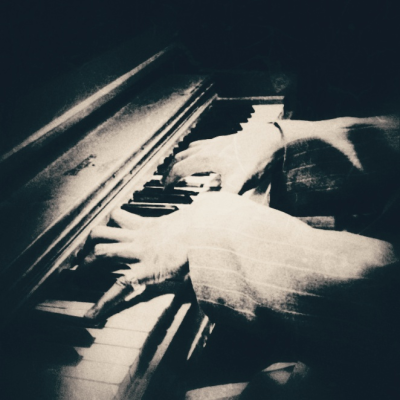


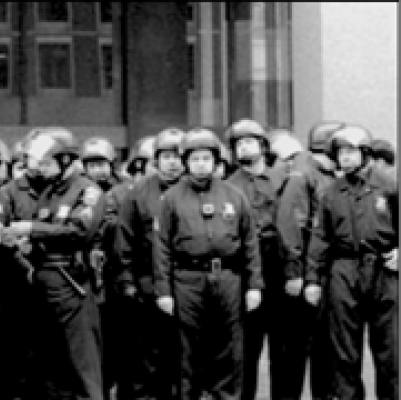










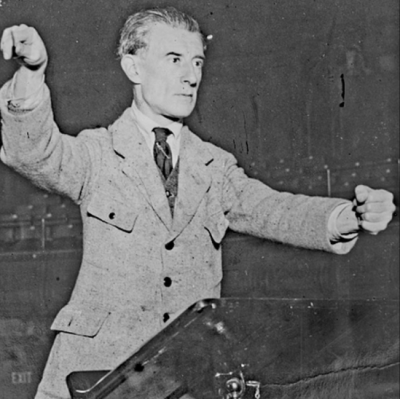

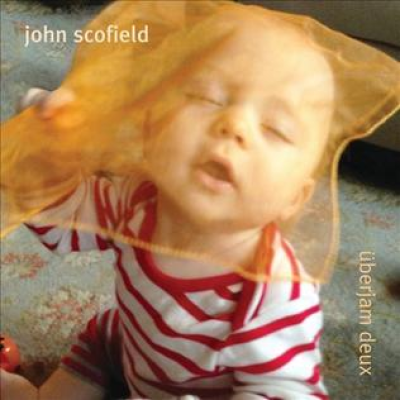






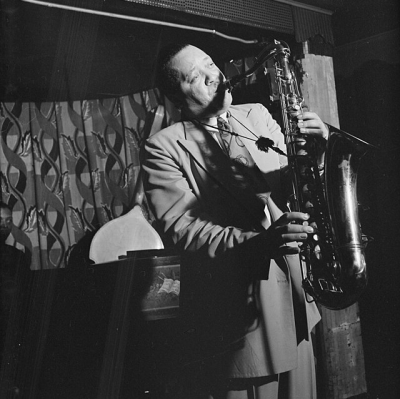













Loved it! You captured the feeling of some of the things we’ve all lost.
Loved it! You captured the feeling of some of the things we’ve all lost.
Great piece. Just one correction on the photo in front of Minton’s that was misidentified on ParisMatch’s site. The man on the far right is Teddy Hill, my grandfather and the manager of Minton’s at the time. It’s not Willie Bryant.
Great piece. Just one correction on the photo in front of Minton’s that was misidentified on ParisMatch’s site. The man on the far right is Teddy Hill, my grandfather and the manager of Minton’s at the time. It’s not Willie Bryant.